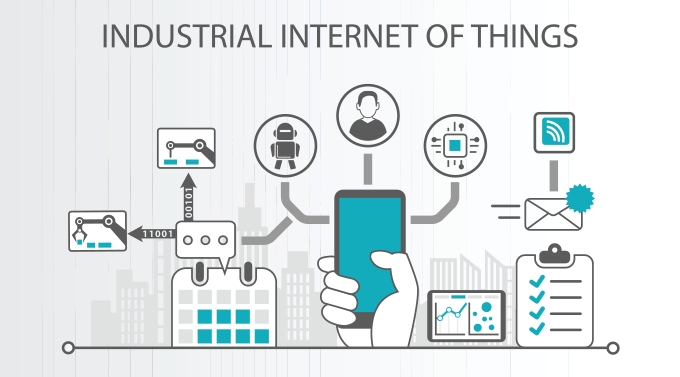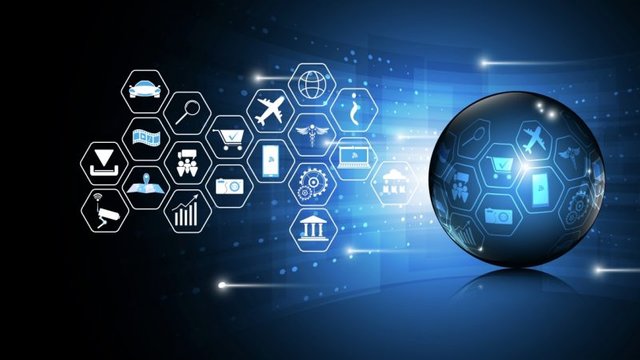Industry 4.0 and Internet of Things
How developing countries stay with the Industry 4.0 and Internet of Things
We live in a technologically advanced world. In order to survive in this world, all countries should adapt accordingly. It includes both developing countries as well as the developed countries. Hence, it has become essential for them to pay attention towards Industry 4.0 and Internet of Things.
What exactly is Industry 4.0?
Industry 4.0 can simply be defined as the name that is provided to the ongoing trend of data exchange and automation in the manufacturing technologies. It includes cognitive computing, cloud computing, internet of things and cyber physical systems. With the help of Industry 4.0, Smart Factories are born. They give life to a virtual duplicate of the physical world, which create an ideal platform to take decentralized decisions. Therefore, it can be considered as the future of industrialization.
Where does IoT come into play?
Internet of Things can be considered as one of the most prominent aspects that you can find in Industry 4.0. It has the ability to create a tremendous impact across a variety of industries. They include distribution of processing, procurement, distribution of raw materials and distribution of finished goods. Robotics, automation, mission critical communications and intelligent sensors would come forward to optimize shipping and mining to factories. As a result, an ideal platform would be created for the growth of the Fourth Industrial Revolution.
What benefits can developing countries receive with Industry 4.0?
Developing countries will be able to receive a variety of benefits with Industry 4.0. These benefits range across a variety of industries including water, health, information technology, habitat, energy and agriculture. Sensors and wireless connectors can assist people to get things done with minimum hassle. With the development of Industry 4.0, more than 25 billion devices across the world will be connected to the internet. Hence, it is possible to control any of these devices, while staying in a different part of the world.
RFID tags would also play a major role behind the increasing popularity of Internet of Things. People who live in developing countries already struggle with getting even the basic facilities that they need in life. For example, they find it as a difficult task to get clean water, electricity and sanitation facilities. With Industry 4.0, it would be possible to cater these needs of people.
Big data analytics and connected devices would monitor air pollution, wildlife, farms, and population movements during disasters, usage of stoves, and trends among people. With the analytics, it would be possible to introduce better solutions to the struggles that people in developing countries face. Therefore, it has become important for the developing countries to take necessary steps in order to keep up with the latest trends in Industry 4.0.
How developing countries can keep up with the trends?
Developing countries will have to face a variety of challenges when introducing the benefits linked with Industry 4.0 and Internet of Things. Lack of internet connectivity holds a prominent place out of them. Adequate internet connections should be available in order to facilitate the needs associated with internet of things. Therefore, the first thing that developing countries should do is to enable high speed internet connections into the country and let people gain access to the World Wide Web.
Internet of Things is in need of an enormous amount of data. Data collection would not be an easy thing to do in the developing countries. On the other hand, Data Centers will need to be installed to capture and analyze required data. This would be a massive investment, where developing countries would fail to deliver. For example, appropriate solutions need to be introduced to store captured data inside the data centers. If this challenge can be addressed, there is a higher chance for the people in developing counties to experience the benefits linked with Internet of Things.
Adequate power resources are not available in developing countries to get the most out of Industry 4.0 and Internet of Things. The energy requirements that would arise needs to be catered with clean sources of energy. Hence, it is important to come up with appropriate energy efficient practices to cater the energy requirements.
Last but not least, human resources needed for Industry 4.0 needs to be available in the developing countries. It is true that Industry 4.0 focuses on automating most of the manual work done by people. However, a considerable amount of human resources are still needed to keep the things run smoothly. Hence, technicians, scientists and engineers should be available to power up the fourth industrial revolution within developing countries. This makes it important for the developing countries to focus on producing the human resources needed to power up the industrial revolution.


@originalworks
The @OriginalWorks bot has determined this post by @coinbaba to be original material and upvoted it!
To call @OriginalWorks, simply reply to any post with @originalworks or !originalworks in your message!
Such a great article, My country (Venezuela) has one of the worst internet connections of the world!. Hope this doesn't leave me behind until I get out of here. Stay on the wave, cheers.
Thanks for your opinion.
Agree, not only in industry revolution.
in all fields like economy "cryptocurrency".